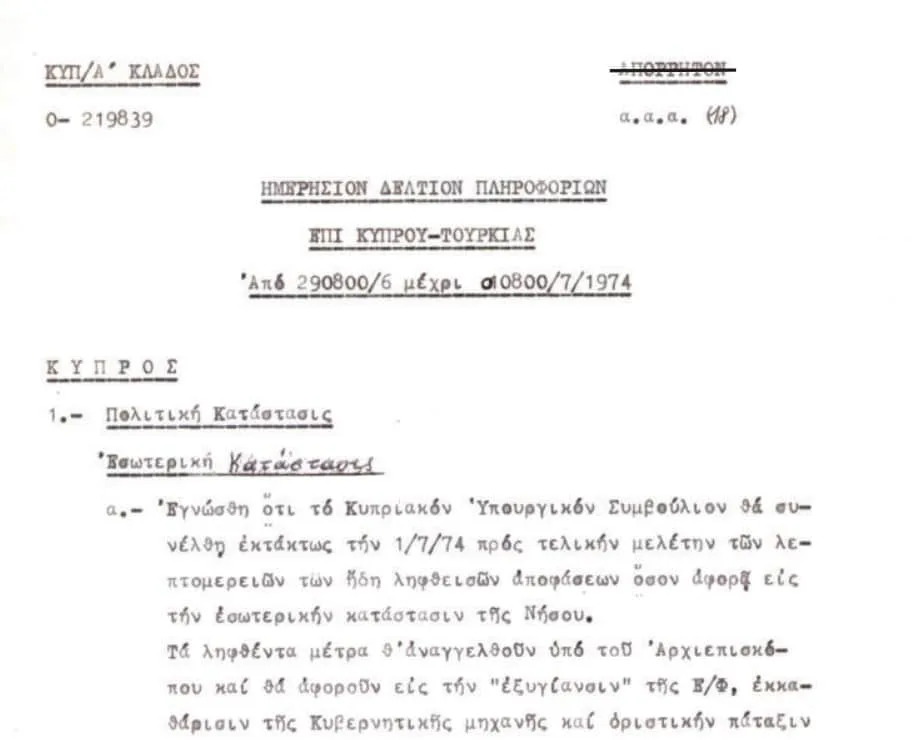On Wednesday, November 13, Greece’s intelligence service declassified 58 reports detailing the Greek-led coup in Cyprus in 1974 and the subsequent Turkish invasion, providing the first inside account of these historic events.
The redacted documents offer new insights into Greece’s perspective from July to August 1974 and have been released with the aim of enhancing the understanding of these critical moments, according to a statement from Greece’s National Intelligence Service (EYP).
The move coincides with the 50th anniversary of the events in Cyprus, whose legacy continues to shape the island today. The Greek-led coup in July 1974 led to Turkey’s invasion just five days later, resulting in the division of Cyprus, which endures to this day. The timing also reflects ongoing efforts by Greece and Turkey—both NATO members but long-standing adversaries—to improve diplomatic relations.
“Fifty years is quite a long period, and, therefore, a safe one that allows you to look back with national and professional self-awareness,” Themistoklis Demiris, director-general of EYP, said. “Even if it doesn’t force you, it encourages reflection.”
The declassified reports, which cover the period from early to mid-July 1974, reveal the escalating tensions between Greece’s military junta—who had seized power in Athens in 1967—and the Cypriot government. Nicosia felt Athens was interfering in its domestic affairs, especially through its support of EOKA B, a paramilitary group seeking to destabilise the Cypriot government.

One report, dated July 2, 1974, recounts the “shrill” warnings of Cypriot officials urging the Greek military presence on the island to be reduced. Another report expressed fears of a Communist takeover should the Greek officers withdraw.
“Talk of expelling Greek officers has sown fear and disquiet among nationalist-minded people of all social strata, because of the Communist risk which is widely believed to manifest itself after Greek officers leave,” one entry from July 4 stated.
The coup, orchestrated by Greece’s junta on July 15, triggered Turkey’s invasion of Cyprus, which resulted in the occupation of the island’s northern region. The crisis ultimately led to the collapse of Greece’s junta just nine days later.
Subsequent reports focus on the military movements and hostilities in Cyprus and Greece, with the Greek government issuing a general mobilisation alert in response to the escalating situation.
Five decades later, Cyprus remains divided, with a Greek-speaking south under the internationally recognised Cypriot government, and the occupied north recognised only by Turkey.
